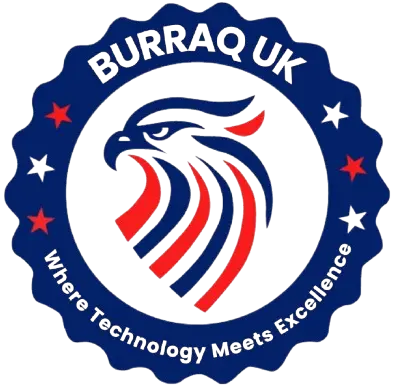Distributed Control System
BURRAQ UK, a leading provider of industrial automation and technical training. Our specialized Distributed Control System (DCS) Training Program is designed to equip engineers, technicians, and control professionals with the knowledge and skills required to work with modern, large-scale process control systems used in industries worldwide.

Aim of Distributed Control System (DCS)
The primary aim of the DCS Training Program at BURRAQ UK is to provide participants with the technical knowledge and practical skills necessary to understand, configure, operate, and troubleshoot Distributed Control Systems used in modern industrial process automation.
Course Overview
Distributed Control System
Total Modules 6
Training Credits 18
Directed Learning Hours (DLH) 150
Course Code BUK1125
- Engineering Students & Graduates
- Specializing in Electrical, Electronics, Mechatronics, Instrumentation, or Industrial Automation
- DAE Diploma Holders (3 Years)
- In Electrical, Electronics, Instrumentation, or Automation Technologies
- Automation & Process Control Technicians
- Working in industries such as oil & gas, power generation, chemical plants, or manufacturing
- Control & Instrumentation Engineers
- Involved in designing, operating, or maintaining automated systems
- Maintenance Engineers & Plant Operators
- Responsible for monitoring and optimizing plant processes using automation systems
- PLC/SCADA Professionals
- Looking to upgrade their skills by learning about large-scale process automation systems like DCS
| Course Code | Curriculum Title | Credit | DLH |
|---|---|---|---|
| BUK1125-1 | Introduction to Distributed Control Systems | 3 | 25 |
| BUK1125-2 | Introduction to Distributed Control Systems | 3 | 25 |
| BUK1125-3 | DCS Hardware and Software Components | 3 | 25 |
| BUK1125-4 | DCS Configuration and Programming | 3 | 25 |
| BUK1125-5 | Communication Protocols and Networking | 3 | 25 |
| BUK1125-6 | Operation and Monitoring | 3 | 25 |
Module 1: Introduction to Distributed Control Systems
- Overview of Process Automation
- Difference Between DCS, PLC, and SCADA
- DCS Architecture and Components
- Applications of DCS in Various Industries
Module 2: DCS Hardware and Software Components
- Controllers, I/O Modules, and Communication Networks
- Human Machine Interface (HMI) and Engineering Stations
- Field Devices: Sensors, Actuators, Transmitters
- Redundancy and Fault Tolerance
Module 3: Process Control Fundamentals
- Control Loop Basics (PID Control, Cascade, Ratio Control)
- Control Strategies and Algorithms
- Setpoints, Controllers, and Final Control Elements
Module 4: DCS Configuration and Programming
- System Engineering and Configuration Tools
- Logic Development and Control Scheme Setup
- Alarm Management and Event Handling
- Graphic Design and HMI Configuration
Module 5: Communication Protocols and Networking
- Industrial Communication Protocols (Modbus, Profibus, Ethernet/IP)
- Data Acquisition and Integration
- Network Architecture and Security Considerations
Module 6: Operation and Monitoring
- Real-Time Process Monitoring
- Alarm Systems and Notifications
- Data Logging and Trending
- Operator Interface Best Practices
Module 7: Troubleshooting and Maintenance
- Diagnosing System Faults and Errors
- Maintenance Procedures for DCS Hardware and Software
- Backup and Recovery Strategies
Module 8: Practical Hands-on Sessions
- Simulation and Configuration Exercises
- Troubleshooting Scenarios
- Case Studies from Real Industry Applications
- Engineering Students & Graduates
- DAE Diploma Holders
- Control & Instrumentation Engineers
- Automation Technicians & Maintenance Staff
- Process Engineers & Plant Operators
- PLC and SCADA Professionals
- All Modules within this qualification are assessed internally by the approved training Centre and externally verified by BURRAQ UK. The program uses a criterion-referenced assessment approach to ensure that learners successfully meet all required learning outcomes.
- A Pass in any unit is granted only when the learner submits valid, reliable, and authentic evidence that demonstrates achievement of the assessment criteria. The Assessor is responsible for reviewing this evidence and confirming that the learner has attained the expected standard.
